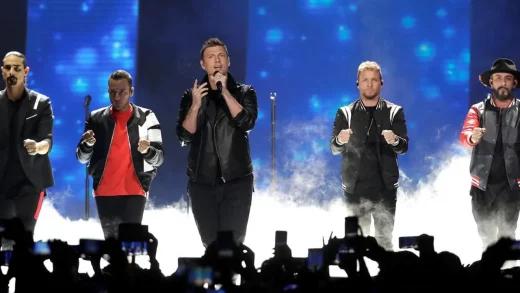
The NDP government’s rebate program for electric vehicles, disclosed in its April budget, came into effect July 1, with the hope it will give the sale of zero-emission vehicles a charge in Manitoba.
The purchase rebate can apply to any new electric vehicle (EV) or plug-in hybrid that costs $70,000 or less. There is a $2,500 rebate on pre-owned EVs.
Manitoba EV purchasers can also access a $5,000 federal rebate on top of the new Manitoba one.
NIC ADAM / FREE PRESS Shelley Kowalchuck (left) and Gary Pedersen with their Chevrolet Volt in the garage of their home.
The rebate is valid for purchases of EV in Manitoba dating to Aug. 1, 2023.
On Tuesday, Environment and Climate Change Minister Tracy Schmidt made the announcement in the driveway of South St. Vital residents Shelley Kowalchuk and Gary Pedersen, who own two EVs.
“My husband and I were early adopters,” Kowalchuk said of the Chevrolet Volt they bought in 2012 and still drive. “It was such a great experience, a few years later, we decided to trade in our gas-powered SUV and get and EV.”
Schmidt said operating an EV is one-quarter the cost of operating an average internal combustion engine vehicle. “We know EVs can help families save money over the long term,” she said.
Pedersen, who said he has immersed himself in knowledge on the subject of EVs over the years, said his 2019 Hyundai Kona SUV has only modestly reduced mileage in winter – from 500 kilometres on a full charge to 380 km in the frigid months.
“But gas-powered cars also experience the same thing in the winters,” he added.
Schmidt said the rebate programs are a great opportunity to lower energy costs while also helping to reduce the province’s greenhouse gas emissions: “This is a crucial step in reducing transportation emissions and delivering on our commitment to develop a road map for Manitoba to achieve net zero emission by (the) 2050s.”
Although EVs may cost less to operate – Kowalchuk said the 2012 Volt only required its first brake job two years ago – they are still more pricey to purchase than traditional gas-powered models.
Schmidt acknowledged Manitoba has lagged behind other provinces that have had EV rebates in place for some time.
In 2018, the Ontario government led by Tory Premier Doug Ford cancelled the rebate that had been put in place by the provincial Liberals. Quebec will phase out all its subsidies by 2027; B.C. recently placed some restrictions on its plan.
“That is part of the challenge with rebates. If they are popular, they can get very expensive for governments very quickly,” said David Adams, president and CEO of Global Automakers of Canada, a national trade association representing the Canadian interests of 15 of the world’s largest automakers.
Manitoba has budgeted $25 million for the program to last four years. Schmidt said the NDP government is expecting to disperse $5 million on the program for the first year.
Environmentalists and EV enthusiasts are happy about it, but some, including Winnipeg MLA Obby Khan, Progressive Conservative finance critic, believe it is bad policy.
“This is just another smoke-and-mirrors policy by the NDP that doesn’t help Manitobans in a time of need,” said Khan (Fort Whyte). “Only a select few Manitobans are looking to buy a $70,000 vehicle. When families are worried about paying their bills, a rebate program of $25 million to help a very small number of people makes no sense.”
Schmidt said the rebate program will help Manitoba reach the federally mandated targets to get EVs to at least 20 per cent of new light-duty vehicles offered for sale by 2026, increasing to 60 per cent by 2030, and 100 per cent by 2035.
Adams said manufacturers have 70 different EV models available in Canada, up from three in 2012, but access to inventory is not what drives sales.
“The key driver for uptake is addressing the barriers that exist for consumers and the first barrier in any survey that has been undertaken tends to be price and the next one is availability of a charging infrastructure,” he said.
“The Manitoba government is certainly addressing the first barrier.”
Meantime, Khan raised the issue of Manitoba Hydro stating it could need new forms of energy generation or face supply issues by as soon as 2029.
Schmidt said the province is looking at a plan for charging infrastructure and the government and Hydro are in the process of developing a sustainable energy plan for Manitoba.
— with files from Carol Sanders

Martin Cash
Reporter
Martin Cash is a business reporter/columnist who’s been on that beat for the Free Press since 1989. He’s a graduate of the University of Toronto and studied journalism at Ryerson (now Toronto Metropolitan University). Read more about Martin.
Every piece of reporting Martin produces is reviewed by an editing team before it is posted online or published in print — part of the Free Press‘s tradition, since 1872, of producing reliable independent journalism. Read more about Free Press’s history and mandate, and learn how our newsroom operates.
Our newsroom depends on a growing audience of readers to power our journalism. If you are not a paid reader, please consider becoming a subscriber.
Our newsroom depends on its audience of readers to power our journalism. Thank you for your support.


